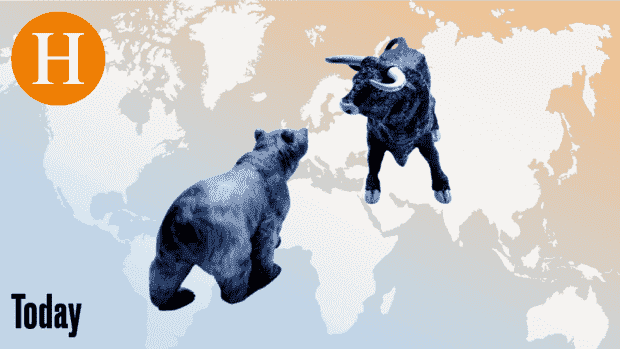Dusseldorf The conflict between Russia and Ukraine reached a new level of escalation on Monday evening. In an almost hour-long speech on Russian state television, President Vladimir Putin recognized the two self-proclaimed People’s Republics of Donetsk and Luhansk in eastern Ukraine as independent states. A little later, the two representatives of the pro-Russian separatist areas and the head of the Kremlin signed a contract in which they assured each other of their support and friendship.
The USA, France and Germany see this as a clear violation of the Minsk Agreement, which was adopted in 2015 and signed by Russia and Ukraine, which has since been intended to ensure peace in eastern Ukraine.
After Putin’s decision, the consequences are not long in coming. Fears are growing that Russian troops could soon fully invade Ukraine. Both the US and the EU have announced far-reaching sanctions packages.
Germany has already made progress: Chancellor Olaf Scholz stopped the approval process for the Nord Stream 2 gas pipeline today. The President of the Handelsblatt Research Institute, Bert Rürup, explains what further levers Europe could set in motion to slow down Russia, and what economic consequences Germany may now face.
Top jobs of the day
Find the best jobs now and
be notified by email.
We have an exclusive subscription offer for you as a Handelsblatt Today listener. Interested? Then take a look here.
If you have any comments, questions, criticism or praise for this episode, please email us at: [email protected]
